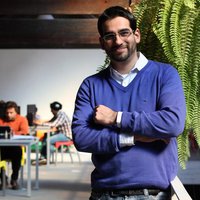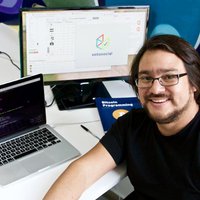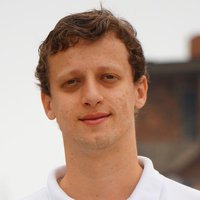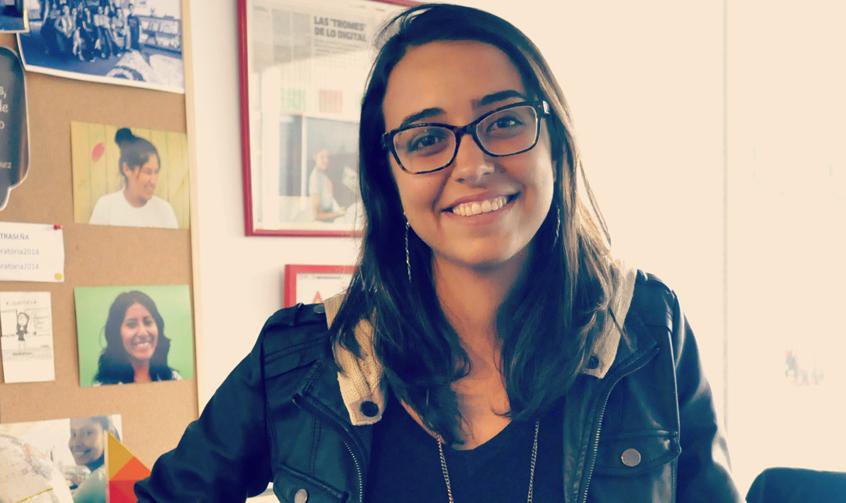"A young Peruvian just back from the United States attended an event for technological entrepreneurs. She had just founded, along with another two Latin American youths, a digital development agency. Every day she looked around, and there were barely any women present. In the digital sector, despite a high demand for qualified professionals, nine out of every ten developers are men.
Laboratoria, the Company founded by Mariana Costa, is a social organization that trains young women with limited resources as programmers and web developers. The organization aims to introduce a growing number of women into the professional marketplace. In Peru, there are more than eight million youths between the ages of 15 and 29, many of whom lack access to a higher education and 20% neither study nor work; Costa´s proposal represents a great opportunity for them.
In 2014, Laboratoria initiated their first pilot program with 15 young students. For six months, the participants received an intensive course to learn to utilize the principal programming languages, or in other words, to construct the code that underlies the most popular digital products and services. The curriculum was defined in collaboration with companies from the industry, and the course concluded with a personal development module to dote the young students with entrepreneurial and self-educational capabilities. “The goal is to give them the ability to achieve highly-skilled, scalable employment, much different from the job opportunities in their environments,” Costa explains.
Upon conclusion of the initial pilot program, this term attracted more than 300 candidates and 130 women trained by Laboratoria between Lima, Arequipa (both in Peru), Santiago de Chile and Mexico D.F. (in Chile and Mexico respectively). To Costa, the elevated number of applicants reflects a positive change in the Peruvian society: “The young participants are becoming role models for other women,” she says.
According to Costa, the pronounced gender disparity in the industry and the lack of opportunities in Peru are replicated across Latin America. Although to date her program has only expanded internationally to Chile and Mexico, she hopes to “continue upscaling” after fully consolidating the existing programs.
The program is supported by three lines of financing: private capital from companies like Google or Telefonica, governmental subsidies (the National Science, Technology and Technological Innovation Bureau covers a large percentage), and the sale of services to companies. The objective is for the profits from the third line of financing to fully cover the educational costs as of the fourth year of the program (currently these benefits only cover 20% of the educational costs).
Upon completing the program, the participants contribute 10% of their salary during two years. Costa says that “these young women are very committed to the program and want to help others to gain the same opportunities.” These payments are only made once the graduates achieve employment as developers.
60% of graduates are hired as intern upon finalizing the program, according to Costa. For many, this represents their first salary, and others triple their previous earnings. Thanks to Laboratoria, both the graduates and their environments experience an important transformation. “It´s a generation of women who will positively influence the corporate sector and their country, which will recover talent and opportunities,” says Costa.
According to Constanza Nieto, the founder and executive director of Globaltech Bridge (EEUU) and jury member for MIT Technology Review´s Innovators Under 35 Peru 2015 awards, Costa´s model represents “a great initiative which will have a large, social impact.”
With a Master´s Degree in Public Administration and Development from the University of Columbia (EEUU), Costa has experience with socially oriented organizations. She worked on a program to promote sustainable development projects and data analysis for improving the healthcare system in Kisumu (Kenya). These experiences prepared Costa for the challenge of founding Laboratoria.




